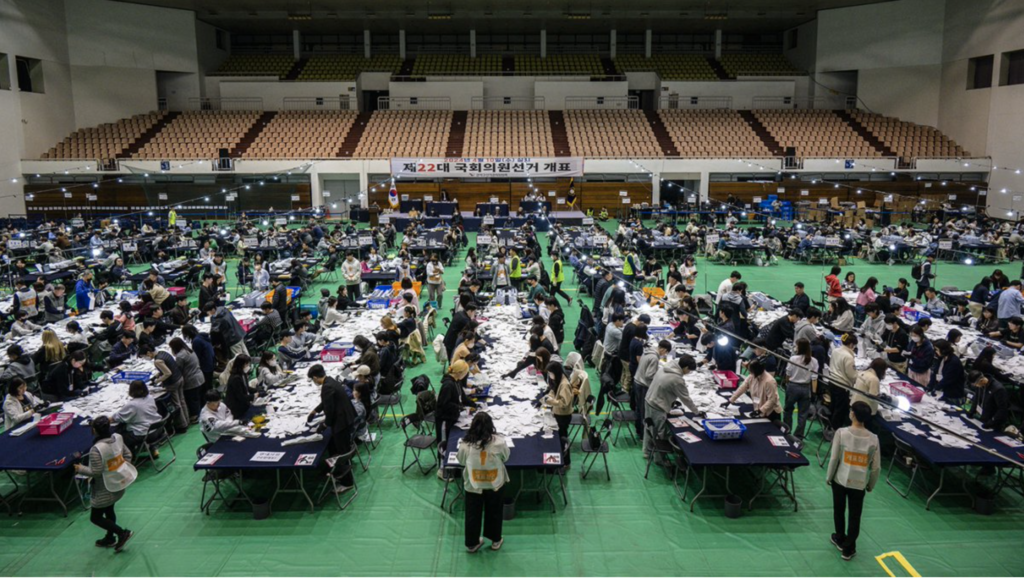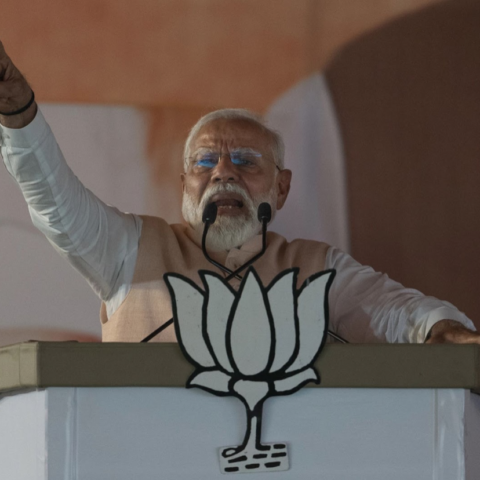By Zach Leggio and Mayerlyn Rivera
Edition 6: April 6-14

Upcoming
South Korea
South Korea’s April 10 legislative elections could be a turning point for the remaining three years of President Yoon Sun Yeol’s term. Yoon’s People Power Party will face off against opposition leader Lee Jae-myung’s Democratic Party, which currently dominates the National Assembly. A sizable third group, the Rebuilding Korea Party, is running in addition to other smaller parties. Rebuilding Korea is led by Cho Kuk, a scandal-ridden former Minister of Justice who has been charged with several counts of fraud and corruption. The party’s ideology is close to that of the Democratic Party, although its main focus is ending the “prosecutorial dictatorship” that Cho claims South Korea has become during Yoon’s presidency.
South Korea’s elections will determine all 300 seats of the National Assembly. Of these, 254 seats are elected using first-past-the-post voting as constituency seats. The other 46 seats are elected using proportional, party-list voting. This mixed system gives voters the ability to vote for their preferred candidate, as well as for their preferred party, which may not always be the same. Over 20% of South Koreans have expressed interest in third parties, leading to the rise in parties like Rebuilding Korea to utilize the proportional representation system to make nation-wide gains.
Yoon has suffered from very low approval ratings and has faced sharp criticism for South Korea’s quickly rising cost of living and creating an increasingly hostile relationship with North Korea. Conservatives argue that if the more liberal Democratic Party takes power, they will be softer on North Korea, damaging South Korean sovereignty. Yoon has spent the first two years of his presidential term working with an opposition-led National Assembly, and more losses in this election could take away any chance of Yoon having a productive final three years in office.
Recaps
Kuwait
Kuwait’s legislative election has yielded very few changes, with opposition candidates maintaining their majority of 29 out of 50 seats in the parliament. In Kuwait, political parties are illegal, leaving legislators to loosely identify with coalitions and their allegiance to the emir, or head of state. This new parliament will have the task of approving the emir’s successor and monitoring economic reform policies.
Emir Mishal al-Ahmad al-Sabah dissolved parliament in February 2024, marking the third time that the legislature had been dissolved in three years, leaving many questions about Kuwait’s democracy. These elections saw opposition candidates retain the same majority that they had prior to the election, strengthening their democratic mandate to rule and hopefully concluding Kuwait’s ongoing legislative crisis.
Slovakia
Peter Pellegrini, an ally to pro-Russian Prime Minister Robert Fico, has won Slovakia’s presidential run-off election with 53.26% of the vote, beating pro-Western Ivan Corčok. Pellegrini’s election paves the way for Fico’s parliament to take a more extreme approach towards issues such as aid to Ukraine and the strength of rule of law. Previously, moderate incumbent President Zuzana Čaputová acted as a counterbalance to Fico’s extreme policies. The Slovak president does not have many powers, although they can veto laws and appoint constitutional court judges, giving them the significant ability to check the power of the parliament.
After winning, Pellegrini has said that nothing will radically change in Slovakia, and they will remain strong allies in both the European Union and NATO. This election continues the trend of eastern European governments becoming increasingly extreme and anti-Western, along with Bulgaria, Hungary and Poland.
Photo Credit: https://www.csis.org/analysis/south-koreas-2024-general-election-results-and-implications

